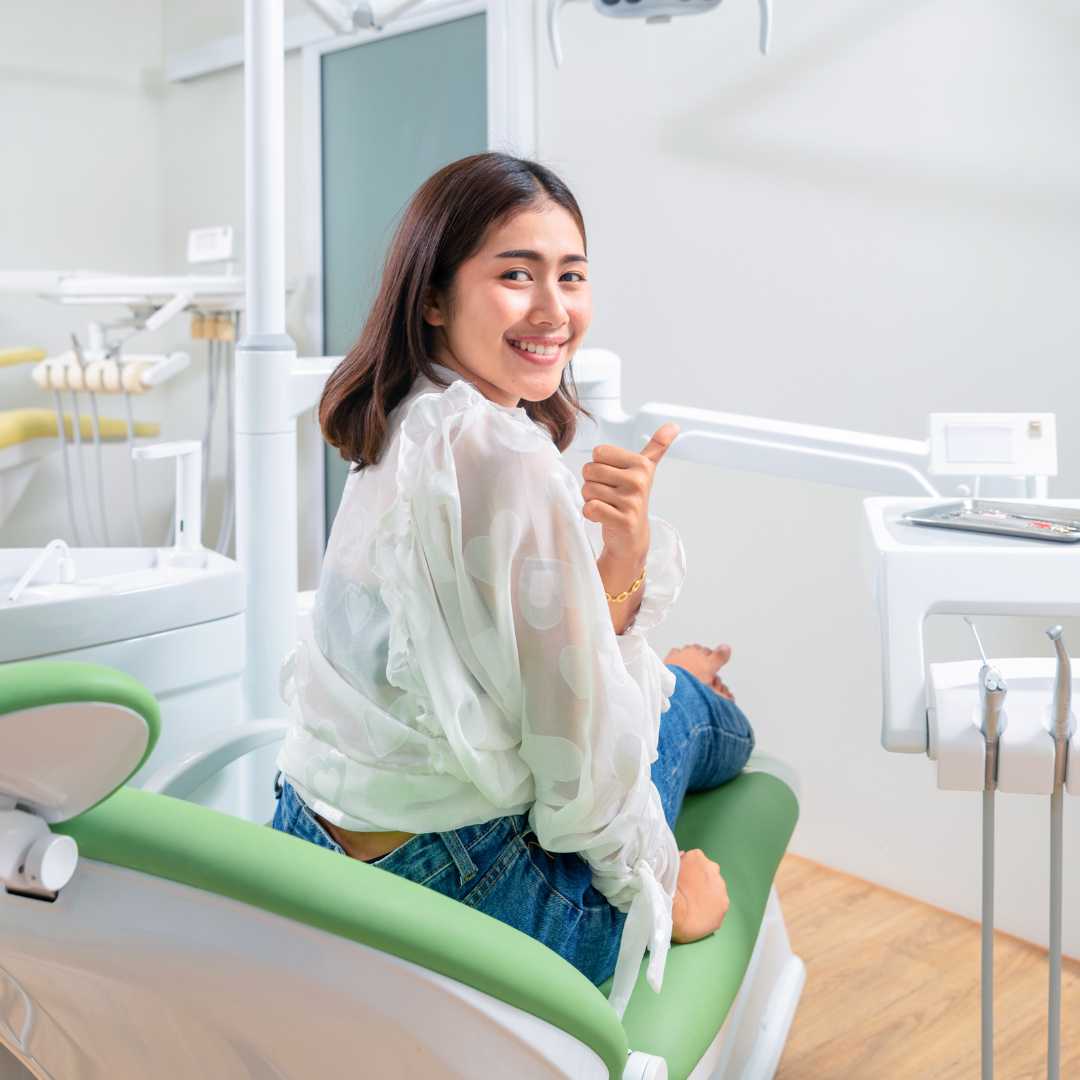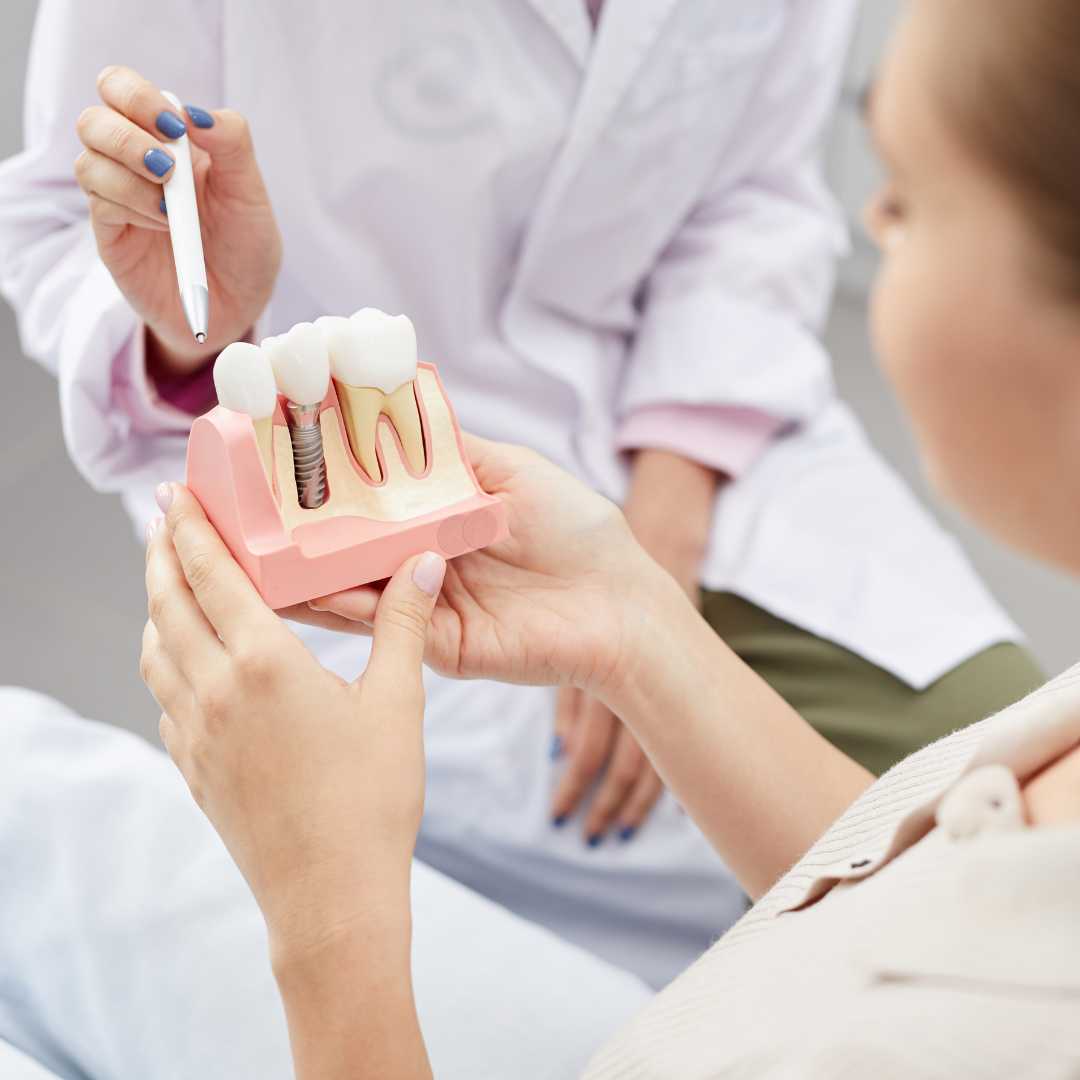How Long Do Veneers Last in Istanbul? Your 2025 Guide

If you're considering enhancing your smile, dental veneers are a fantastic option, offering a quick and dramatic transformation. Istanbul, Turkey, has become a leading destination for high-quality cosmetic dentistry, attracting patients worldwide with its expert dentists and competitive prices. Many people wonder, "How long do veneers last in Istanbul?" It's a natural question, as you want your investment in a beautiful smile to stand the test of time.
The good news is that veneers placed in reputable Istanbul clinics, using high-quality materials and techniques, are designed for significant longevity. Just like veneers placed anywhere else in the world, their lifespan primarily depends on the type of material chosen and the diligent care you provide afterward. You'll find that while the cost may be lower in Turkey compared to Western countries, the standards of materials and craftsmanship are often on par, ensuring durable results.
A dental veneer is a thin, custom-made shell designed to cover the front surface of your tooth. They are bonded to your natural teeth to improve their appearance, correcting issues like discoloration, chips, gaps, or slight misalignments. The two main types you'll encounter are porcelain veneers and composite veneers, each with distinct characteristics regarding aesthetics, durability, and lifespan. This detailed guide will explore everything you need to know about how long veneers last in Istanbul, focusing on factors that influence their durability, essential aftercare, and what to expect from your smile transformation.
What are the different types of veneers available in Istanbul?
When considering veneers in Istanbul, you'll generally choose between two primary materials, each with its own advantages:
- Porcelain Veneers: These are custom-made shells crafted in a dental laboratory from high-quality ceramic. They are renowned for their strength, stain resistance, and ability to closely mimic the translucency and light-reflecting properties of natural tooth enamel. Porcelain veneers offer superior aesthetics and durability. Sub-types include:
- E-Max Veneers: Made from lithium disilicate glass-ceramic, E-Max is a popular brand known for its exceptional strength and beautiful, natural appearance. They are often thinner than traditional porcelain veneers but equally durable.
- Zirconia Veneers: Zirconia is an extremely strong and biocompatible ceramic material. While traditionally used for crowns and bridges, advancements have made it suitable for veneers, especially where maximum strength is required, or for patients with teeth grinding issues. They offer excellent durability.
- Composite Veneers: Also known as direct veneers or dental bonding, these are made from a tooth-colored resin material applied directly to your teeth and sculpted into shape by the dentist. They are a more economical and quicker option, often completed in a single visit. While they can provide good aesthetic results, they are generally less durable and more prone to staining and chipping than porcelain.
Your Istanbul dentist will discuss these options with you, considering your aesthetic goals, budget, and oral health to recommend the best type of veneer for your specific needs.
How does the material of veneers affect their lifespan? (Porcelain vs. Composite)
The choice of material is the single most important factor determining how long your veneers will last. Here's a breakdown of the expected lifespan based on material:
- Porcelain Veneers (E-Max, Zirconia, etc.): These are the gold standard for longevity. With proper care, porcelain veneers can last an impressive **10 to 15 years**, and it's not uncommon for them to last **20 years or even longer**. Their superior durability comes from the fact that porcelain is a hard, non-porous material that resists wear, chipping, and staining remarkably well. Once bonded to your teeth, they form a very strong and stable unit.
- Composite Veneers: While a more affordable and quicker solution, composite veneers have a shorter lifespan. On average, you can expect them to last **5 to 7 years**. Composite resin is softer than porcelain, making it more susceptible to chipping, staining, and wear over time. While minor damage to composite veneers can often be repaired chairside, porcelain veneers typically require replacement if significant damage occurs.
It's important to weigh the initial cost against the expected longevity. While porcelain veneers have a higher upfront investment, their extended lifespan often makes them a more cost-effective choice in the long run.
Do E-Max veneers last longer than traditional porcelain veneers?
When we talk about "traditional porcelain veneers," we often refer to feldspathic porcelain, which has been used for decades. E-Max veneers, on the other hand, are made from lithium disilicate, a type of glass-ceramic that has revolutionized cosmetic dentistry.
Due to their unique crystalline structure, E-Max veneers are significantly stronger and more resistant to fracture than traditional feldspathic porcelain. This increased strength means they are less likely to chip or crack, especially under normal chewing forces. Therefore, while both are highly durable, **E-Max veneers often meet or exceed the longevity of traditional porcelain**, typically lasting anywhere from 10 to 20 years, sometimes even longer.
The enhanced durability of E-Max, combined with its excellent translucency that mimics natural tooth enamel, makes it a popular choice in Istanbul clinics for patients seeking a long-lasting and highly aesthetic smile transformation.
What factors contribute to the longevity of veneers?
While the type of veneer material is paramount, several other crucial factors play a significant role in how long your veneers will last, regardless of where they are placed:
- Quality of Dental Work: The skill and experience of the dentist and the precision of the dental lab are critical. Proper tooth preparation, accurate impressions, and meticulous bonding techniques ensure a strong, long-lasting bond between the veneer and your natural tooth. In Istanbul, many clinics boast highly experienced dentists and state-of-the-art labs, contributing to excellent results.
- Oral Hygiene: Consistent and thorough brushing and flossing prevent plaque buildup and gum disease. While veneers themselves cannot get cavities, the underlying natural tooth can, which could compromise the veneer's integrity.
- Diet and Eating Habits: Avoiding very hard or sticky foods (e.g., hard candies, ice, bones, nuts) can prevent chipping or cracking. While porcelain is strong, excessive force can still cause damage.
- Harmful Habits: Habits like nail-biting, chewing on pens, or using teeth to open packages should be avoided. These put undue stress on the veneers.
- Teeth Grinding (Bruxism): If you clench or grind your teeth, especially at night, the constant pressure can severely damage veneers. Your dentist may recommend a custom-fitted nightguard to protect them.
- Regular Dental Check-ups: Routine visits to your dentist in Istanbul or your home country allow for professional cleanings and early detection of any potential issues with your veneers or underlying teeth.
Paying attention to these factors can significantly extend the life of your veneers.
How important is oral hygiene for veneer lifespan?
Maintaining diligent oral hygiene is not just about keeping your veneers looking good; it's fundamental to their long-term survival. While veneers are resistant to cavities themselves, the natural tooth structure underneath them and the surrounding gum tissue are still vulnerable to dental problems.
If decay develops on the natural tooth beneath the veneer, or if gum disease progresses, it can weaken the bond between the veneer and the tooth. This can lead to the veneer debonding, chipping, or even requiring replacement. Furthermore, healthy gums are essential for the aesthetic integration of your veneers; receding gums can expose the natural tooth margin, affecting appearance and potentially leading to sensitivity.
Therefore, brush twice daily with a soft-bristled toothbrush and non-abrasive toothpaste, and floss daily. This routine removes plaque and food particles, keeping both your natural teeth and your veneers healthy and maximizing their lifespan.
Can diet and habits affect how long my veneers last?
Your daily habits and dietary choices play a substantial role in the longevity of your veneers. Even the most durable porcelain veneers are not indestructible and can be damaged by excessive force.
Dietary Considerations:
- Hard Foods: Avoid biting directly into extremely hard foods like ice, hard candies, nuts, or popcorn kernels. These can cause chipping or cracking, especially with repeated pressure.
- Sticky/Chewy Foods: While less likely to cause damage, very sticky or chewy foods can put excessive strain on the veneer bond, potentially leading to loosening over a long period.
- Staining Foods/Drinks: For porcelain veneers, staining is generally not an issue as they are highly stain-resistant. However, the bonding material around the edges can sometimes stain. For composite veneers, discoloration is a more significant concern; limiting coffee, tea, red wine, and dark berries can help maintain their color. Rinsing your mouth with water after consuming these can also help.
Habits to Avoid:
- Nail Biting: This seemingly innocuous habit can put destructive pressure on your front veneers.
- Chewing on Objects: Pens, pencils, or even the ends of eyeglasses can cause unexpected damage.
- Using Teeth as Tools: Never use your teeth to open bottles, tear packages, or cut tape. Always use appropriate tools.
Being mindful of what you eat and how you use your teeth will go a long way in preserving the integrity and appearance of your veneers.
What role does teeth grinding (bruxism) play in veneer durability?
Bruxism, or the involuntary grinding or clenching of teeth, is a major threat to the longevity of veneers. Whether it occurs during the day or, more commonly, at night while you sleep, the forces generated by bruxism can be far greater than those from normal chewing.
This constant, abrasive pressure can lead to:
- Chipping and Cracking: Even durable porcelain veneers can succumb to the intense, sustained forces of grinding.
- Wear: Over time, the surface of the veneers can wear down, especially with composite options.
- Debonding: The repeated stress can weaken the adhesive bond holding the veneer to the natural tooth, causing it to loosen or fall off.
If you have a history of bruxism, your Istanbul dentist will likely recommend a custom-fitted **nightguard** (occlusal splint). This clear, removable appliance protects your veneers and natural teeth from the damaging effects of grinding and clenching, significantly extending their lifespan.
Is the quality of the dental clinic and dentist in Istanbul important for veneer lifespan?
While Istanbul offers competitive pricing, it's vital to choose a reputable clinic with experienced professionals. The skill of your dentist directly impacts the fit, aesthetics, and longevity of your veneers. A highly qualified dentist will:
- Properly Assess Your Oral Health: Ensuring your teeth and gums are healthy enough for veneers. They will identify and address underlying issues like decay or gum disease first.
- Precise Tooth Preparation: Veneers require minimal removal of tooth enamel, but this step needs to be exact to ensure a perfect fit and strong bond. Over-preparation can weaken the tooth, while under-preparation can result in bulky veneers.
- Accurate Impressions: High-quality impressions are crucial for the dental lab to create veneers that fit perfectly and seamlessly integrate with your smile. Many modern Istanbul clinics use digital scanning for superior accuracy.
- Meticulous Bonding: The bonding process, where the veneer is permanently adhered to your tooth, requires precision and the use of high-quality bonding agents. A strong, impermeable bond prevents issues like sensitivity, discoloration, and premature debonding.
Reputable clinics in Istanbul often adhere to international standards and invest in advanced technology and ongoing training for their staff, which directly translates to more durable and long-lasting veneer results.
What aftercare steps should I follow to make my veneers last?
Caring for your veneers is similar to caring for your natural teeth, but with a few extra considerations to ensure their maximum lifespan and appearance. Consistency is key in your aftercare routine:
- Brush Regularly: Brush your teeth at least twice a day with a soft-bristled toothbrush and a non-abrasive toothpaste. Abrasive toothpastes can scratch porcelain veneers over time and wear down composite veneers.
- Floss Daily: Flossing is essential to remove plaque and food particles from between your teeth and around the gum line, preventing gum disease and decay that could affect the underlying tooth.
- Use a Nightguard (if recommended): If you clench or grind your teeth, wearing a custom-fitted nightguard at night will protect your veneers from excessive forces.
- Mind Your Diet: As discussed, avoid biting into very hard foods (e.g., ice, hard candies, nuts) and be cautious with extremely sticky items.
- Avoid Staining Agents (especially for composite): While porcelain is highly stain-resistant, excessive consumption of highly pigmented foods and drinks (coffee, tea, red wine) can still cause staining over time, particularly around the bonding margins or on composite veneers. Rinsing your mouth after consumption can help.
- Break Bad Habits: Stop habits like nail-biting, chewing on pens, or using your teeth to open packages.
By integrating these simple yet effective steps into your daily routine, you can significantly extend the life and beauty of your veneers.
How often should I get my veneers checked by a dentist?
Regular dental check-ups are a cornerstone of maintaining the longevity of your veneers. These routine visits allow your dentist to:
- Assess Veneer Integrity: Your dentist will examine your veneers for any signs of wear, chips, cracks, or debonding that might not be immediately obvious to you.
- Check Underlying Teeth: They will ensure that the natural teeth beneath your veneers remain healthy and free from decay.
- Evaluate Gum Health: Healthy gums are crucial. Your dentist will check for any signs of gum disease, which can compromise the aesthetic and structural integrity of your veneers.
- Professional Cleaning: Dental hygienists use special tools and techniques that are safe for veneers to remove stubborn plaque and tartar buildup.
- Address Issues Promptly: Early detection of any problem, whether with the veneer itself or your oral health, means it can be addressed before it escalates into a more significant, costly issue.
Whether you're visiting your dentist in Istanbul for follow-up or your local dentist, these consistent check-ups are essential for maximizing the lifespan of your veneers.
What are the signs that my veneers might need to be replaced?
Even with the best care, veneers will eventually need to be replaced. Knowing the signs can help you plan for their renewal and maintain your smile's health and aesthetics:
- Chips, Cracks, or Fractures: Visible damage to the veneer surface is a clear indication it might need replacement. While minor chips on composite veneers can sometimes be repaired, porcelain damage usually necessitates a new veneer.
- Significant Discoloration or Staining: While porcelain is very stain-resistant, over many years or with poor hygiene, subtle staining can occur. Composite veneers are more prone to significant discoloration. If the color no longer matches your natural teeth or is noticeably dull, it's time for replacement.
- Debonding or Loosening: If a veneer feels loose or has completely detached from your tooth, it needs immediate attention. Sometimes it can be re-bonded if both the veneer and tooth are intact, but often replacement is required.
- Gum Recession: If your gums recede, the margin of the natural tooth root underneath the veneer can become exposed. This can look unsightly and lead to sensitivity or decay, signaling a need for new veneers that can cover the exposed area.
- Underlying Tooth Decay: If the natural tooth beneath the veneer develops decay, the veneer will need to be removed to treat the cavity. A new veneer will then be placed once the tooth is healthy.
- Rough Edges or Uncomfortable Bite: Over time, wear and tear can create rough edges or alter your bite, causing discomfort.
Regular dental check-ups are crucial for identifying these signs early, often before they become noticeable to you, ensuring timely replacement if needed.
Can veneers be repaired if they chip or crack?
The repairability of veneers largely depends on the material they are made from:
- Composite Veneers: Minor chips or cracks in composite veneers are often repairable. Your dentist can usually add more composite resin to the damaged area, sculpt it, and bond it to the existing veneer. This is a chairside procedure and can be relatively quick and cost-effective. However, the repaired area might not perfectly match the original veneer's shade or texture over time.
- Porcelain Veneers: Unfortunately, porcelain veneers are generally not repairable in the same way composite ones are. Porcelain is a ceramic material, and once it chips or cracks significantly, it's very difficult to bond new material to it seamlessly and durably. Attempting a repair on a porcelain veneer often results in a weak point that can fail again quickly, or an aesthetically compromised result. For this reason, if a porcelain veneer sustains a notable chip or crack, the most common and recommended solution is to completely remove it and replace it with a new custom-fabricated veneer.
Always consult your dentist if your veneer gets damaged. They will assess the extent of the damage and recommend the most appropriate course of action.
How does the cost of veneers relate to their lifespan in Istanbul?
In Istanbul, as with dental treatments globally, there's a direct correlation between the cost of veneers and their expected lifespan and quality. This is primarily driven by the material used:
Cost vs. Lifespan Breakdown:
| Veneer Type | Average Cost (per tooth) in Istanbul (approx.) | Average Lifespan | Value Proposition |
|---|---|---|---|
| Composite Veneers | $100 - $300 | 5 - 7 years | Lower initial cost, quicker, but higher long-term replacement frequency. |
| Porcelain Veneers | $250 - $700+ (depending on type, e.g., E-Max) | 10 - 15+ years | Higher initial cost, but significantly longer lifespan, less frequent replacement, and superior aesthetics/durability. |
While the initial cost of porcelain veneers might seem higher, their extended durability and superior aesthetics often translate to better value over their lifetime. You'll replace them less frequently, which saves on future dental costs and time. Conversely, while composite veneers are cheaper upfront, their shorter lifespan means you'll likely incur replacement costs sooner, potentially making them more expensive in the long run if you desire a permanent solution.
Are cheaper veneers in Istanbul less durable?
The perception that "cheaper" automatically means "less durable" in Istanbul requires clarification. The significant price difference often comes down to the material chosen, not necessarily a compromise on the quality of the dental work for a given material.
For example, if you opt for composite veneers, they are indeed cheaper per tooth than porcelain veneers. This lower cost is because composite resin is a less expensive material, and the application process is quicker (often completed in one visit without laboratory involvement). As established, composite veneers are inherently less durable and have a shorter lifespan than porcelain.
However, when it comes to porcelain veneers in Istanbul, the lower prices compared to Western countries are largely due to:
- Lower operating costs for clinics (rent, labor, utilities).
- Government support for medical tourism.
- A competitive market with many clinics.
These factors allow Istanbul clinics to offer high-quality porcelain veneers (including durable brands like E-Max and Zirconia) at a fraction of the cost, often using the same top-tier materials and employing highly skilled dentists as found in Europe or the US. Therefore, a "cheaper" porcelain veneer in Istanbul can be just as durable as its Western counterpart, assuming you choose a reputable clinic.
What are the benefits of choosing long-lasting veneers?
Investing in long-lasting veneers, particularly high-quality porcelain options from Istanbul, provides numerous advantages that extend beyond just a beautiful smile:
- Enduring Aesthetics: Long-lasting veneers, especially porcelain, maintain their pristine appearance for many years. They resist staining, retain their translucency, and continue to look natural, ensuring your smile remains bright and consistent.
- Superior Durability: Less worry about chips, cracks, or wear. Durable veneers can withstand normal chewing forces and daily life with greater resilience, offering peace of mind.
- Fewer Replacements: This is a major benefit for both your wallet and your time. A veneer that lasts 10-15+ years means fewer trips to the dentist for replacements, less time off work, and fewer additional procedure costs over your lifetime.
- Long-Term Cost-Effectiveness: While the initial investment for porcelain veneers is higher than composite, their extended lifespan significantly reduces the per-year cost, making them a more economical choice over the long haul.
- Consistent Comfort and Confidence: Knowing your veneers are strong and stable contributes to greater comfort and confidence in your daily life, from eating and speaking to smiling freely.
- Protection for Natural Teeth: Properly placed, durable veneers also offer a layer of protection to the underlying natural teeth, shielding them from minor impacts and wear.
Ultimately, long-lasting veneers represent a sound investment in your oral health, aesthetics, and overall quality of life.
How can I protect my veneers during sports or physical activities?
If you participate in sports or any physical activities where there's a risk of impact to your face or mouth, protecting your veneers is crucial. While veneers are strong, a direct blow can cause them to chip, crack, or even completely dislodge.
The most effective way to protect your veneers is by wearing a **custom-fitted mouthguard**. Your dentist can create a mouthguard that perfectly fits your teeth and veneers, offering superior protection compared to over-the-counter boil-and-bite guards. A well-fitting mouthguard:
- Absorbs and disperses impact forces.
- Prevents teeth from clenching together.
- Protects both your veneers and your natural teeth from trauma.
Discuss your athletic activities with your Istanbul dentist during your consultation, or with your local dentist, so they can advise on whether a mouthguard is necessary for your lifestyle. This simple protective measure can save you from costly and inconvenient repairs or replacements down the line.
Do veneers stain over time, and does this affect their longevity?
The susceptibility of veneers to staining largely depends on the material:
- Porcelain Veneers: These are made from a non-porous, glass-like ceramic material, making them highly resistant to stains from coffee, tea, red wine, and other pigmented foods and drinks. In fact, porcelain is more stain-resistant than natural tooth enamel. Any perceived "staining" on porcelain veneers is more likely due to discoloration of the bonding material around the edges or the natural teeth adjacent to the veneers.
- Composite Veneers: Composite resin is a more porous material than porcelain, making it more susceptible to absorbing pigments from foods and drinks over time. This can lead to gradual yellowing or staining, requiring professional polishing or eventual replacement for aesthetic reasons.
While staining primarily affects the aesthetic appeal of your veneers, it doesn't necessarily impact their structural longevity unless the staining is a result of poor oral hygiene leading to plaque buildup at the margins. Maintaining good oral hygiene and being mindful of staining foods (especially with composite veneers) can help preserve their bright appearance for longer.
Is a warranty offered on veneers in Istanbul?
One of the advantages of choosing established clinics in Istanbul for your dental work is that many offer guarantees or warranties on their treatments, including veneers. This provides an added layer of assurance for international patients.
Typical Warranty Coverage:
- Duration: Warranties for veneers often range from 1 to 5 years, though some premium clinics might offer longer terms.
- What's Covered: Generally, warranties cover issues related to material defects (e.g., unexpected cracking or fracturing of the porcelain) or problems with the bonding (e.g., the veneer coming off).
- Exclusions: It's important to understand the exclusions. Warranties typically do not cover damage caused by patient negligence (e.g., biting on hard objects, not wearing a nightguard for bruxism), accidents (e.g., sports injuries), or complications arising from pre-existing untreated dental conditions. Neglecting oral hygiene or not following post-treatment care instructions can also void the warranty.
Always ask your chosen Istanbul clinic for their specific warranty policy in writing and ensure you understand all the terms and conditions before proceeding with your veneer treatment. This transparency is a good indicator of a trustworthy clinic.
What's the typical maintenance routine for long-lasting veneers?
Ensuring your veneers last as long as possible primarily comes down to a consistent and careful maintenance routine. This isn't drastically different from good general oral hygiene, but with a few specifics tailored to veneers:
- Brushing: Brush your teeth and veneers at least twice a day using a soft-bristled toothbrush. Use a non-abrasive fluoride toothpaste. Avoid harsh scrubbing motions.
- Flossing: Floss daily to clean between your teeth and at the gum line. This prevents plaque buildup and gum disease, which can affect the underlying tooth structure and the health of your gums around the veneers.
- Regular Dental Check-ups and Cleanings: Visit your dentist every six months for professional cleanings and examinations. Your dental hygienist will use specialized tools safe for veneers.
- Protect from Trauma:
- Avoid biting hard objects like ice, hard candies, or nuts directly with your veneered teeth.
- Do not use your teeth to open packages or tear materials.
- If you play contact sports, wear a custom-fitted mouthguard.
- If you grind or clench your teeth (bruxism), use a prescribed nightguard.
- Mind Staining Agents (especially for composite): While porcelain resists stains, composite veneers are more susceptible. Limiting highly pigmented foods and drinks, or rinsing your mouth with water after consuming them, can help.
Adhering to this simple routine will help preserve the beauty and structural integrity of your veneers for many years.
What is the process for getting veneers in Istanbul? (Brief overview in relation to longevity)
Understanding the process of getting veneers in Istanbul can help you appreciate how each step contributes to their longevity:
- Initial Consultation & Examination: This crucial first step involves a thorough oral examination, X-rays, and a discussion of your aesthetic goals. The dentist will assess your oral health to ensure you are a suitable candidate and determine the best type of veneer for you. A proper diagnosis here lays the groundwork for a long-lasting result.
- Tooth Preparation: For porcelain veneers, a small amount of enamel (usually less than a millimeter) is precisely removed from the front surface of the teeth. This creates space for the veneer and ensures a natural, non-bulky fit. Precise preparation is vital for strong bonding and veneer longevity. For composite veneers, preparation is often minimal or not required.
- Impressions or Digital Scans: Highly accurate impressions (or digital scans in modern clinics) of your prepared teeth are taken. These are sent to a dental lab (for porcelain) to custom-fabricate your veneers. The accuracy of these impressions directly affects the fit and lifespan of the final veneer.
- Temporary Veneers (for Porcelain): While your permanent porcelain veneers are being crafted (which can take a few days), temporary veneers are often placed to protect the prepared teeth and maintain aesthetics.
- Veneer Fabrication (Lab Work): Skilled lab technicians meticulously create your custom porcelain veneers, ensuring they match your desired shade, shape, and size. High-quality materials and craftsmanship in the lab are paramount for durability.
- Final Bonding: Once the permanent veneers are ready, you'll return for the fitting. The dentist will check the fit, color, and bite. Once confirmed, the veneers are permanently bonded to your teeth using a strong dental adhesive. This bonding process is crucial for the veneer's stability and long-term success.
The efficiency and expertise at each stage in Istanbul clinics ensure a smooth process and contribute directly to the durable and beautiful outcome of your veneers.
Ready to transform your smile with long-lasting, high-quality veneers? Explore PlacidWay to connect with leading dental clinics in Istanbul and get a personalized, no-obligation quote.


.png)






.png)





.png)

Share this listing